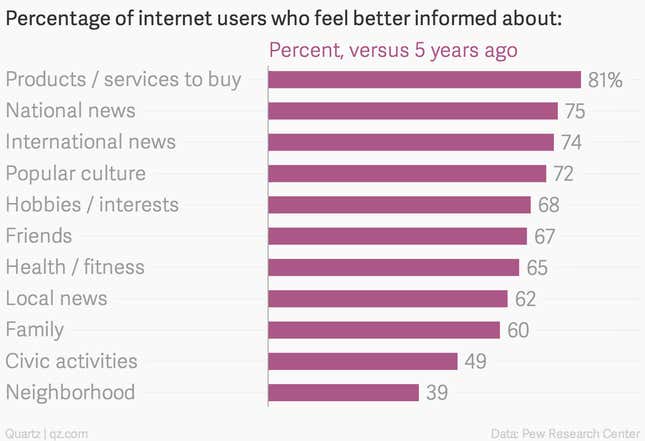It is sometimes difficult to reconcile the internet’s amazing contributions to society (Google search, Wikipedia, email, messaging) versus its dark side (YouTube comments, anonymous message boards, celebrity photo hacks). But overall, it seems the internet is indeed making us smarter.
Specifically, according to a report by the Pew Research Center released today, 87% of US adults who use the internet and cell phones say these additions improved their ability to learn new things over the last five years. Only about a quarter of those surveyed said they felt “overloaded” by the amount of information available online, with the vast majority saying they like having the effective sum of all human knowledge available to them at all times.

Most people surveyed felt internet use had left them better informed about the news, products and services to buy, and about their friends’ lives. Interestingly, only 39% of those surveyed said they were better informed about their neighborhood and neighbors thanks to the internet. This suggests that “hyperlocal” news and discussion sites like AOL’s struggling local news agency, Patch, the now-defunct blog aggregator Outside.in, and the more recent social network Nextdoor are worthy experiments, if not always effective.
More than three quarters of Americans said they think the internet has made US students better informed, although 8% said students were less well-informed—presumably these are the people who keep believing headlines they see from The Onion.




